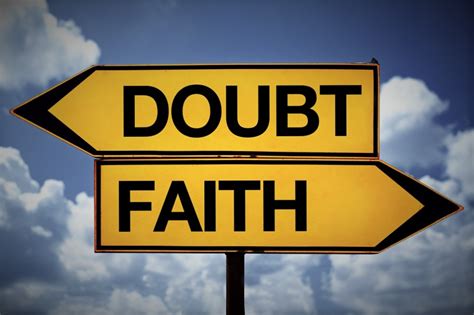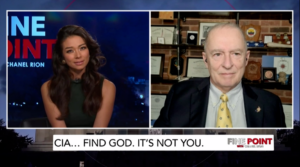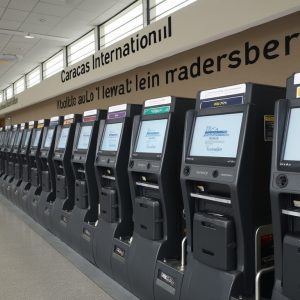FROM THE WAT TO THE POOL
by Jeemes Akers
“I believe it is impossible to be sure of anything.”
Han Fei
“Jesus said unto her, I am the resurrection, and the life: he that believeth in me, though he were dead, yet shall he live.”
John 11:25
It has been an interesting summer indeed. After selling our house, we lived for several weeks in a hotel, then like a couple gypsies out of our car as we traveled and now, finally, we are settling into our apartment as Ima finishes her last full year of school.
To say it has been a whirlwind of experiences is the understatement of all time.
But it has also been an incredible season of learning and personal growth. When we were living in the hotel, for example, I would take a daily walk and explore the surrounding area. On one such trek—in the heat of the day—I strolled a half-mile or so to a small Buddhist wat. I had passed the compound several times before (in the car on our way to eat pizza). This was my first opportunity to observe, up close and personal, the Buddhist compound and its inhabitants. To escape the intense heat of the sun, (even though I was wearing one of those wide-brimmed, tropical hats), I rested on a wooden bench in a pavilion inside the wat grounds. I was glad to find a patch of shade.
From my sweaty vantage point, I studied the simple architecture of the wat directly in front of me—not nearly as impressive as the giant, gaudy Buddhist temples and wats I had encountered in Thailand and Myanmar. The wat’s entrance was guarded by a rather unimpressive, gold-painted and life-sized Buddha (not like the giant, impressive statues of Buddha in Asia often protected by intricate, fierce-looking half-demon, half-dragon sentinels, such as those at the gates of the Temple of the Jade Buddha in the middle of Bangkok). Here, by contrast, only an occasional saffron-robed monk left the air-conditioned building to bless a new car purchased by one of the parishioners.
No one bothered me or, for that matter, even paid attention to my presence there. Indeed, I remember it being a bucolic scene of serenity: two birds gracefully arcing overhead against the backdrop of beautiful, fluffy summer clouds, a pleasant scent of roses and other flowers wafting my way from the compound’s entrance, and a bumblebee ambling along on the rickety boards beneath my feet.
My mind drifted back to a mental image from one of my many visits to Bangkok. I was in a fan-tailed speedboat churning up the chocolate-brown Chao Praya River that runs through the heart of the city. Amidst a clump of dilapidated wooden buildings, a mother was bathing her child in the filthy, putrid, waste-ridden river waters. A young child brushed her teeth nearby using the same water. In that brief moment I understood why so many people in Asia were not interested in a western version of a heaven with golden streets or angels strumming harps. They simply wanted off the karma wheel, to a future nothingness.
The noises of modernity snapped me out of the reverie as the calm of the wat compound was disrupted by technological intrusions. The wat is close to Dulles International Airport and a wide-body was noisily making its approach overhead. The wat’s parking lot also was half-full of late model cars and vans.
The juxtaposition of the old and the new.
I soaked in the scene for an hour or so.
While sitting there, an inwardly familiar voice asked me the same question I have heard repeated so many times in so many settings over the years: “Jeemes, how can you be so sure in what you believe?” As I have been blessed to travel the globe over the past four decades, that same question has accompanied me to the insides of Chinese-Hokkien Taoist temples in Singapore—or the green-painted Muslim mosque just down the street—or to ornate Hindu temples studded on the outside with hundreds of deities, or Jewish synagogues, or some of the most beautiful Catholic cathedrals in Europe, or when walking the grounds of the Mormon temple in Salt Lake City. Regardless of the scene (and its architectural majesty), that same question bounces around and rattles in my mind, like a restless mental marble-ball on a neural roulette wheel seeking a safe place to lodge.
And, with it, a final answer.
Why do I believe the way I do?
And how—especially in the face of these Asian religions that predate my own by several centuries—can I be sure?
At the same time I was mulling over the latest rendition of this question, I began reading a fascinating biography of Martin Luther by Eric Metaxas.[1] Martin Luther is one of my favorite historical characters—whether teaching Western Civilization or German History—and I can identify with the desperate inner anxiety (Anfechtungen) that drove him to seek God at all costs and expose the corruption of the Church he loved. As many of you history lovers know, his clash with the Church culminated in a confrontation at the famous Diet of Worms, an assembly of nobles, church leaders and other notables of the Holy Roman Empire presided over by new Emperor Charles V in late May 1521. Luther was accused of heresy and asked to recant all his writings. At one point he was challenged by the Emperor’s interlocutor Johannes von der Ecken: “Martin, how can you assume that you are the only one to understand the sense of Scripture? Would you put your judgement above that of so many famous men and claim that you know more than them all?”[2] Of course, Luther then followed with one of the world’s greatest speeches of personal conscience and faith (in German and Latin).
The question of how one can be secure in their faith with so many alternative and, in many cases, long-cherished views floating about, can be an interesting one indeed.
A few days ago, I had an extraordinary discussion with an individual who claimed he was an atheist. (Actually, he was agnostic). I had neither planned nor expected the conversation. It simply burped up out of the ether. Spontaneous. That’s the way God acts sometimes. It was the first time I had met the man. He was an extraordinary thinker and a very successful individual. His questions were honest, deep-probing inquiries. Toward the end of our exchange, I noted that it was really a matter of presuppositions: his starting point was nothing, my starting point is grounded in the reality of an all-powerful and loving God.
But why do I continue to cling to this baseline that God is in control?
This morning I read an interesting article by one of my favorite scientific agnostics, John Horgan—who likes to make intellectual forays into that gray realm between belief in God and modern science—in a piece titled “What God, Quantum Mechanics and Consciousness Have in Common.”[3] Horgan (whose main snag with Christianity is the problem of how a loving God can allow evil, suffering and injustice), in his rambling way, discusses free will, the “problem” of beauty, the newest efforts to recast quantum mechanics as a theory of information, and ends with an overview of scientific thought on consciousness. I enjoyed his piece.
I’ve said all that to get to one quote toward the end of the piece: “I’m [Horgan] definitely a skeptic. I doubt we’ll ever know whether God exists, what quantum mechanics means, how matter makes mind. These thee puzzles, I suspect, are different aspects of a single, impenetrable mystery at the heart of things.”
H-m-m.
For me, that is the very same gray area where the white ball is circling the wheel seeking a place to stop rolling.
****
Another wrinkle in this existential inquiry came on the heels of a question asked by one of my students at the College of the Ozarks[4] some five years ago. I still remember it clearly. I shared my sincere conviction with the students that they were likely a part of the final generation and that time, as we know it, was getting short. One of my students, Uliks Bokshi—a young man brought up in Kosovo—raised his hand. “Did you say the same things, about a final generation, to your college classes twenty years ago?”
It was a simple question.
Yet for some reason, that simple question penetrated to my inner core. As a result, I spent the next several months in self-reflection, repeatedly asking myself, how sure am I that that these kids, these millennials[5] in my college classroom, and my grandchildren by blood, mostly Gen-Zers, are really the final generations? How can I be so sure we are actually living in the final days?
After all, the argument goes, haven’t believers been saying they were the final generation since the early church?
In this vein, while researching a book based on “the simple question,” I ran across a fascinating article written by one of my favorite futurists—and a self-acknowledged Christian—Kevin Kelly,[6] suggesting that Christians may want to prepare themselves to be around for another 1,000 years (only 13 generations):
“The problem with Christianity is that for the past 1,000 years it has permitted itself only one scenario of the future: the end of the world in our lifetime. In fact, make that 2,000 years. The first generations of Christians believed the future was short lived, and that it would end in their lifetimes. And the 25 lifetime-generations since then have also believed that the future was short and the world would end in their lifetime. Every generation has legitimately seen signs and wonders indicating an immediate end of the world. The scenario was plausible in every century. It might still happen today, in our lifetime.”
But then, in the very next paragraph, Kelly presents a far deeper thought:
“The end of the world in our lifetime is a scenario that cannot be rejected. It is as plausible as it has ever been. But in order to fashion a Christianity ready for the next 1,000 years, this generation of Christ- ians must begin to create alternative future scenarios in order to fill out the space of possibilities. By relying on a single scenario of the future for the last 2,000 years, in particular a single scenario that was constantly and decidedly wrong, Christianity left the invention and control of the actual future to those outside the church. Relatively few scientists are Christians, and almost no futurists are. By retreating to this unwavering single wrong prediction Christianity has surrendered the future to non-believers.”[7]
H-m-m-m. Kelly, speaking on another occasion, noted that using pure mathematical probabilities it is far more likely that Jesus Christ will return in 1,000 years than tomorrow.
That thought gives me pause for reflection.
At the same time, the signs that Christ gave to indicate the “birth pangs” for a final generation of believers—Matthew 24—have never been as applicable as they are today.
At any rate, if I truly believed the imminent end of our age was five years ago—and I am more convinced of that than ever before, especially in these troubled times—there is, of course, a vital follow-on question. If today’s young people are truly living in the last days, what will the next fifteen to twenty years look like (assuming things hold together that long)?
That question prompted me to compile (and expound on) a list of twelve assumptions that would shape the world in the near-future, and how young Christian believers need to start preparing themselves for what is looming over the horizon. (I recently reassessed these assumptions—after seven years—to see if they still stack up; please let me know if you are interested in the reassessment and I will be glad to send it to you by e-mail). The assumptions, in turn, served as the basis for a book titled A Simple Question (still unpublished). In that book I took the statement of Jesus Christ Himself that He is the “way, truth and the life,” and devoted a section to each in light of likely future events. I also used the assumptions as a baseline for my Christian science fiction trilogy.
*****
A final, and most surprising, take on this question of how can I be sure of my faith came from the most unlikely of incidents. A couple weeks ago, Joshua (the “Snapper”) and Baby Jeemes—two of our grandchildren—came over for a visit to our new apartment and brought their swimming trunks. I donned a pair of swimming trunks even though I hadn’t been swimming since 2002 (out of an abundance of caution due to post-surgical equipment I have wrestled with on a daily basis following cancer surgery).
But, I thought to myself, today is the day!
My plan was to dive into the pool, sneak up on Baby Jeemes like a stealth submarine and give him an underwater wedgy.
I dove into the water.
And sank like a rock to the bottom of the pool.
Fortunately, I was in water only four-feet deep.
In some twenty years of disuse, I had forgotten how to swim. My brain remembered how it used to be, but on that day, my muscles failed to make the necessary linkages and, of course, I was heavier and out of shape. Even such simple things as buoyancy—painfully acquired by trial-and-error as a kid—were locked away in some remote corner of my brain.
What a surprise. I had assumed that once you learned how to swim that you would be able to swim forever.
What is my point?
I think there is a correlation between my quest for spiritual certainty and what happened to me at the swimming pool that afternoon.
Many of us seek deep answers to the probing questions of life in the waters we see around us, but we have allowed our spiritual muscles to become flabby because of years of unuse. The reality of the waters have not changed: we have. Swimming, like pursuing an abundant spiritual life, takes constant effort and exercise; otherwise, a faith in God can steadily dissipate over time.
More to the point, when I fail to immerse myself in God—through constant praise and worship—the reality of His existence can grow cold, faraway and dim.
[1] Eric Metaxas, Martin Luther: The Man Who Rediscovered God and Changed the World, NY: Penguin Books, 2017.
[2] Ibid., p. 215.
[3] John Horgan, “What God, Quantum Mechanics and Consciousness Have in Common,” Scientific American, Aug. 2021.
[4] The College of the Ozarks, dubbed “Hard Work U” by the Wall Street Journal, is a no-tuition Christian liberal-arts college located on a beautiful 1,000 acre campus overlooking Lake Taneycomo at Point Lookout, Missouri (near the Ozarks entertainment city of Branson, MO.) CofO caters to local students and emphasizes citizenship values, a strong work ethic and basic Christian values. I have known, and respected, CofO’s current president, Dr. Jerry C. Davis, since the mid-1960s.
[5] For purposes of this missive, I consider almost all my former college students and grandchildren as belonging to one of two demographic cohorts: the Millennials, those individuals roughly born between 1982 and 1994, and the Generation-Z cohort, those born between 1995 and 2010. Naturally, the definitional age limit and composition of each cohort vary according to source.
[6] Kevin Kelly is the founding executive editor of Wired magazine and a former editor/publisher of the Whole Earth Review. He is a popular participant in contemporary conferences dealing with various aspects of the digital culture. He is author of the now-classic book The Inevitable: Understanding the 12 Technological Forces that will Shape Our Future, Viking Press, 2016.
[7] Both quotes are from Kevin Kelly, “The Next One Thousand Years of Christianity,” kk.org (accessed Jun 4, 2019.




